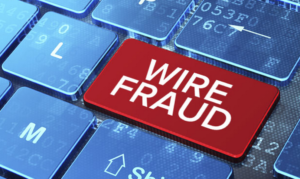 Wire and Mail Fraud are Federal Crimes. Mail fraud, 18 U.S.C., Section 1341, and wire fraud, 18 U.S.C., Section 1343, are the crimes charged in almost all Federal fraud cases. Mail fraud makes it a Federal crime to execute a “scheme or artifice to defraud” that uses the U.S. mail, or other interstate common carrier such as U.P.S. or Federal Express. Wire fraud similarly prohibits the execution of a “scheme or artifice to defraud” that uses “wire, radio, or television communication in interstate or foreign commerce”. These offenses both carry maximum prison terms of 20 years. The use of interstate mail and wire transfers gives the Federal Courts jurisdiction over what would otherwise be a case of fraud that could only be prosecuted in State Court.
Wire and Mail Fraud are Federal Crimes. Mail fraud, 18 U.S.C., Section 1341, and wire fraud, 18 U.S.C., Section 1343, are the crimes charged in almost all Federal fraud cases. Mail fraud makes it a Federal crime to execute a “scheme or artifice to defraud” that uses the U.S. mail, or other interstate common carrier such as U.P.S. or Federal Express. Wire fraud similarly prohibits the execution of a “scheme or artifice to defraud” that uses “wire, radio, or television communication in interstate or foreign commerce”. These offenses both carry maximum prison terms of 20 years. The use of interstate mail and wire transfers gives the Federal Courts jurisdiction over what would otherwise be a case of fraud that could only be prosecuted in State Court.
Follow Charles